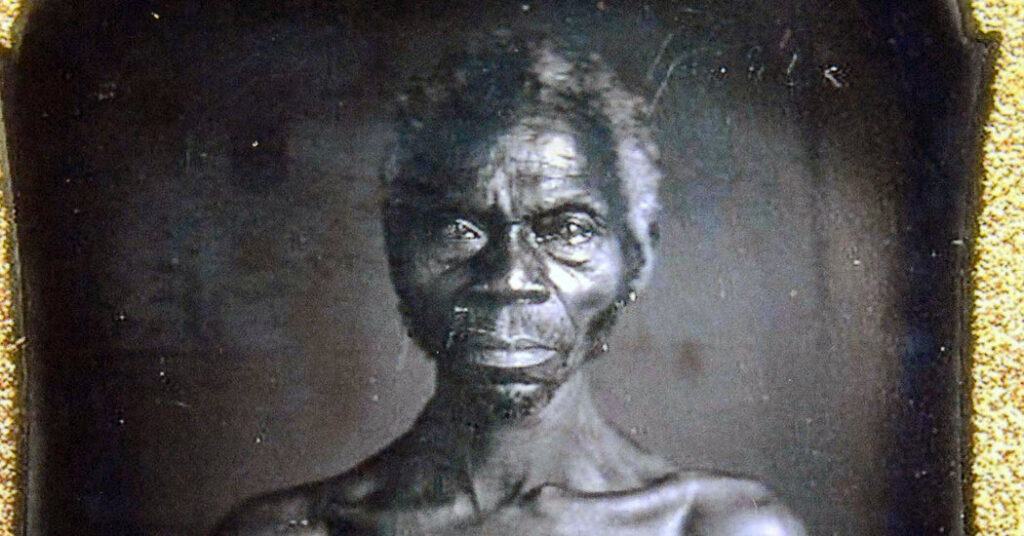Harvard University will relinquish its ownership of two haunting images of an enslaved father and his daughter after settling a six-year yasal battle with a woman who says she is their descendant.
The images, two 175-year-old daguerreotypes that were taken for a Harvard professor and used as evidence for a discredited pseudoscientific theory of Black racial inferiority, will not, however, go to the woman who sued for them, Tamara Lanier. Instead, they are expected to be transferred, along with images of five other enslaved people, to the International African American Museum in Charleston, S.C., the state where the subjects were enslaved.
The settlement comes as Harvard deals with an onslaught of litigation as it tries to fight off President Trump’s efforts to cripple the university. Ms. Lanier cheered the outcome of her case, which will be announced on Wednesday.
“I have been at odds with Harvard over the custody and deva of my enslaved ancestors, and now I can rest assured that my enslaved ancestors will be traveling to a new home,” Ms. Lanier said in an interview. “They will be returning to their home state where this all began, and they will be placed in an institution that can celebrate their humanity.”
Harvard did not respond to requests for comment.
The kanunî fight over the images of the enslaved man, known as Renty, and his daughter, Delia, took on outsize importance as storied universities such as Harvard and Georgetown grappled with their ties to slavery. In 2016, Harvard Law School abandoned an 80-year-old shield based on the crest of a slaveholding family that helped endow the institution. That same year, Georgetown University decided to offer an advantage in admissions to descendants of enslaved people who were sold to fund the school.
But as museums began to repatriate human remains and sacred objects to Native American tribes, Harvard held on to the images of Renty and Delia. Ms. Lanier said she first reached out to the university about 15 years ago when she learned of the images. Renty resembled an ancestor whose legend had been passed down through family oral history, she said.





More Stories
Beware: We Are Entering a New Phase of the Trump Era
NBA playoffs results and takeaways: Pacers 1 win from NBA Finals as Knicks flounder in Game 4
Tek ısırığı öldürebilir: Tunceli’de görüntülendi